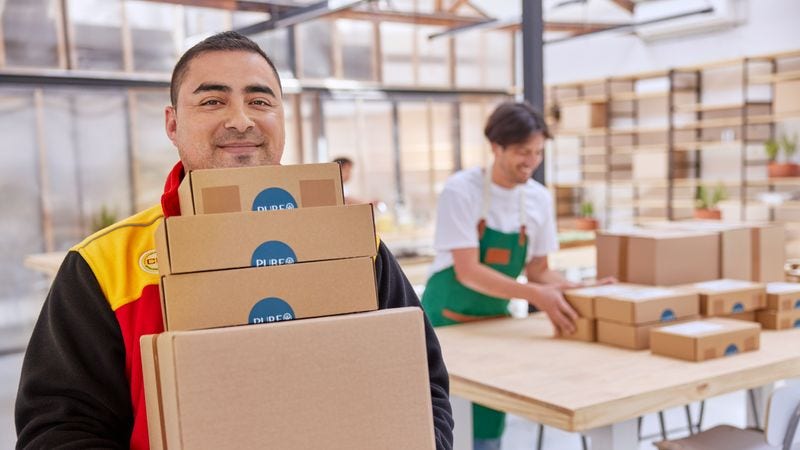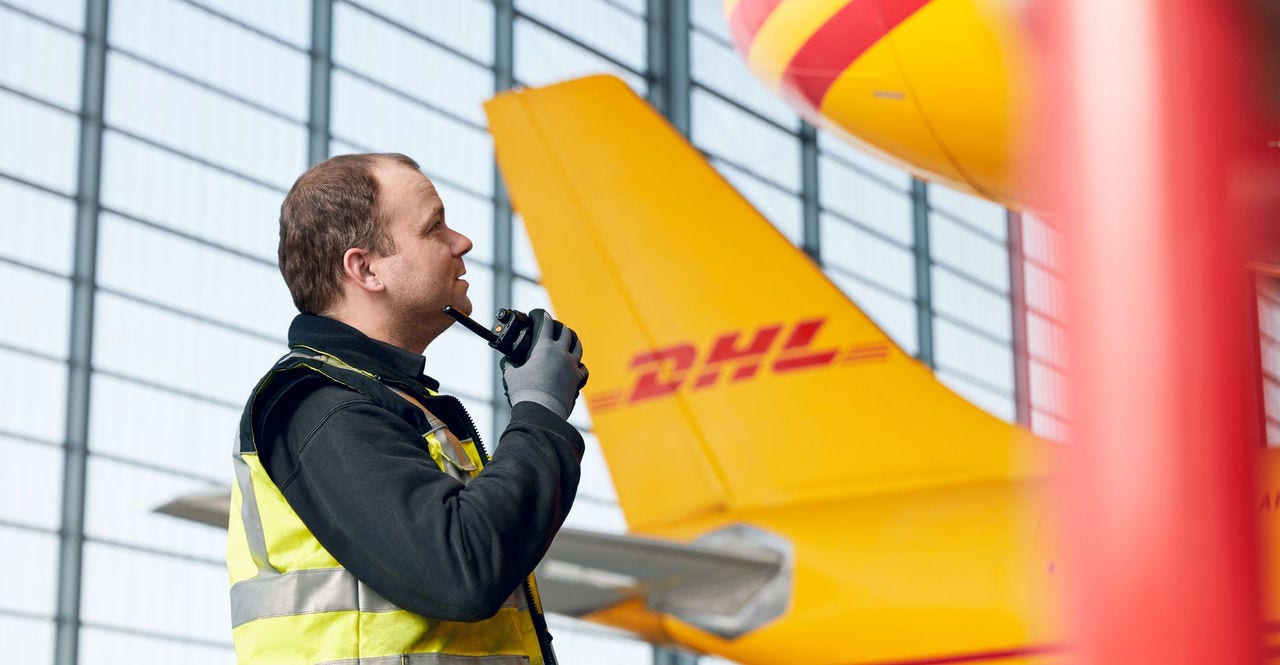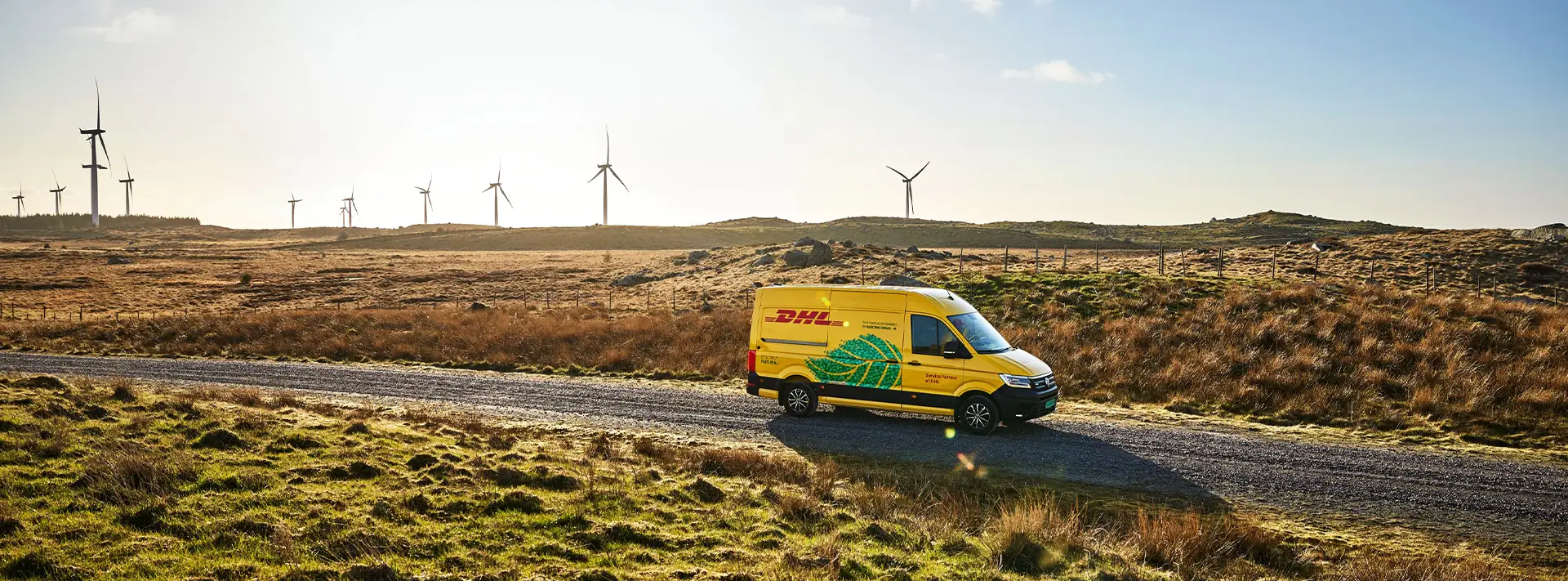
In a world increasingly aware of its ecological footprint, the logistics industry faces the challenge of balancing global connectivity with environmental responsibility. DHL Express is spearheading the charge towards a sustainable future by championing the adoption of Sustainable Aviation Fuel (SAF) for international air cargo shipping.
This blog explores the science behind SAF, its benefits, and how businesses in Cambodia can participate in this transformative journey towards green logistics.
The rising importance of sustainable logistics
The global call for carbon neutrality reverberates across all sectors, and logistics is no exception. As businesses in Cambodia increasingly rely on international shipping for their supply chains, the need for greener alternatives is paramount. DHL Express recognises this need and has made Sustainable Aviation Fuel a key component of its sustainable logistics strategy.
According to the International Energy Agency, the aviation industry accounted for approximately 2% of global carbon dioxide emissions in 2022. With the projected growth in air travel and freight, this number is expected to rise significantly if left unchecked.
DHL Express’ investment in SAF is not just a symbolic gesture; it’s a tangible step towards reducing its carbon footprint. In 2022, DHL purchased 33 million litres of SAF, which was projected to save over 80,000 tonnes of carbon dioxide emissions. In 2023, it entered a seven-year partnership with World Energy to secure approximately 678 million tonnes of SAF via SAFc (Sustainable Aviation Fuel certificates).
The company's proactive approach to incorporating SAF into its operations demonstrates a commitment to green logistics in supply chain management, setting a benchmark for the industry.
What is Sustainable Aviation Fuel made of, and how does it work?
Sustainable Aviation Fuel is a drop-in fuel, meaning it can be used in existing aircraft without any modifications. It's produced from various sustainable feedstocks, including:
- Used cooking oil and animal fats: These waste products are converted into biofuel through a process called hydrotreating, reducing waste and creating a valuable resource.
- Algae and other non-food crops: Algae and certain non-food crops can be cultivated specifically for biofuel production, offering a sustainable alternative to traditional fuel sources.
- Agricultural and forestry residues: Waste products from agriculture and forestry, such as corn stover or wood chips, can be converted into biofuel, promoting efficient resource utilisation.
- Municipal solid waste: Advanced technologies can convert non-recyclable waste into SAF, contributing to waste reduction and energy recovery.
This reliance on sustainable sources of energy leads to a reduction in lifecycle greenhouse gas emissions by up to 80% compared to conventional jet fuel – making SAF a vital tool in decarbonising aviation in logistics transportation.
While 100% SAF-powered engines are still in development, current aircraft can operate on a blend of up to 50% SAF with conventional jet fuel. DHL Express is actively working towards increasing the percentage of SAF used in its operations, contributing to the global effort towards sustainable jet fuel adoption. The company has set ambitious targets to reach 30% SAF usage by 2030, demonstrating its commitment to leading an industry-wide transition.
Is Sustainable Aviation Fuel good or bad?
Undoubtedly, Sustainable Aviation Fuel is a positive step towards greener aviation logistics. It significantly reduces greenhouse gas emissions, supports the circular economy by utilising waste products, and fosters energy independence by reducing reliance on fossil fuels. However, it's important to note that its production and scaling up are still evolving, and achieving full sustainability in aviation requires a multifaceted approach.
Benefits of choosing Sustainable Aviation Fuel for your international delivery shipments
The advantages of incorporating Sustainable Aviation Fuel into your logistics strategy are compelling, offering both environmental and business benefits.
- Environmental Impact: By choosing SAF for your shipments, you directly contribute to reducing carbon emissions and supporting global climate goals. This aligns your business with the growing demand for sustainable aircraft fuel and responsible supply chain practices.
- Business Advantages: Consumers are becoming increasingly conscious of the environmental impact of their purchases and actively seek out companies that prioritise sustainability and run ethical business operations. By opting for SAF shipments with DHL Express, you enhance your brand image, differentiate yourself from competitors, and appeal to a wider, more environmentally conscious customer base. This can lead to increased customer loyalty, improved brand reputation, and even potential cost savings in the long run as sustainable practices become more mainstream.
How businesses can engage with DHL Express’ Sustainable Aviation Fuel programme

The logistics landscape is undergoing a transformation towards sustainability, and DHL Express is leading the way. The adoption of Sustainable Aviation Fuel is a testament to our commitment to green logistics and creating a more sustainable future for Cambodia and the world.
And businesses have their own role to play in this revolution, too.
DHL Express makes it easy for businesses in Cambodia to opt for sustainable fuel for their standard international shipping and courier pickup services. Simply inquire about the GoGreen Plus service when booking your overseas shipment, and DHL Express will seamlessly integrate SAF into your logistics operations. DHL Express will handle the sourcing and blending of SAF entirely, ensuring a smooth and hassle-free experience for your business.
Choosing the GoGreen Plus service not only allows you to reduce the carbon footprint of your shipments but also actively supports the development and scaling of SAF production. Your participation sends a powerful signal to the market, encouraging further investment in Sustainable Aviation Fuel and accelerating the transition to a greener future for logistics and supply chain management.
By making conscious choices about your logistics partners and practices, you and your partners can collectively build a future where international shipping out of Cambodia is not just efficient but also environmentally responsible.
Open a DHL Express business account today and join us in making a positive impact on the planet.





























